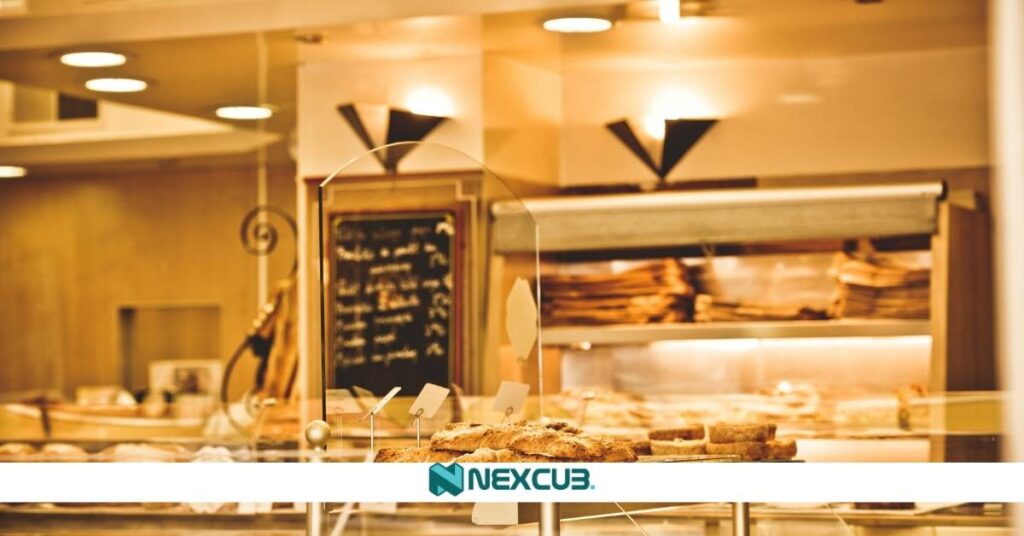Our Location
304 North Cardinal St.
Dorchester Center, MA 02124

Starting a bakery business from home is a dream come true for many who love to bake. It’s a chance to turn your passion into profit, right from your kitchen. With the right planning and some key steps, you can make your home bakery a success.
Building a home based bakery means understanding your local cottage food laws, selecting a niche, and setting up a simple but effective workspace. You will also need a pricing strategy to cover costs and attract customers. Marketing your delicious creations can bring steady orders and loyal clients.
Starting a home based bakery lets you turn your love for baking into a small business. With the right setup, you can create a steady income from your kitchen.
To make it work, you will need to follow local food laws and develop a plan for your business. Here are some tips to help you get started:
Home bakery cottage food laws let you bake and sell directly from your kitchen, but each state has its own rules. These laws often limit what types of goods you can sell, like non perishable items such as cookies, bread and cakes.
To comply, you may need a food handler’s permit or a home inspection. Many states also cap how much you can earn yearly from selling homemade goods, so check your state’s regulations carefully.
Labeling is another key requirement. Cottage food laws usually require clear labels on each item, listing ingredients and possible allergens. This ensures customers know exactly what’s in their treats.
Make Sure You are Legally Set Before Doing Anything Else
Starting a home bakery requires knowing the rules to keep your business safe and legal. Before baking your first cake, take time to learn the laws in your area.

Cottage food laws allow home based businesses to sell specific baked goods. It is essential to know what foods you can sell and any safety standards you must follow.
Each state has its own set of rules, so research the regulations where you live. You may also need to pass inspections to ensure your kitchen meets health standards.
Setting up a legal business entity protects you and your assets. Consider forming an LLC or another structure that works best for you.
You will also need a business license to legally operate. This shows you are serious about your bakery and helps with taxes and permits.
Tracking your finances from day one helps you stay organized and avoid surprises. Set up a separate business bank account to keep your personal and business finances separate.
Planning for taxes is important too. Make sure to save money throughout the year and consult an accountant to ensure you file correctly.
Planning your bakery menu is an important step to make your business stand out. Focus on a few items you make well and enjoy baking, such as cakes, muffins, or pies.
Keep in mind what local customers like and consider offering seasonal treats to keep things fresh. You can also include flavors or themes that represent your bakery’s unique style.
Don’t forget to think about packaging and pricing. Make sure your menu items are priced well for your target market while still covering your costs.
Getting the right equipment is key to running a successful bakery. You’ll need basics like ovens, mixers, and baking trays to get started.
Focus on quality over quantity, especially when you are just beginning. Consider buying used or second-hand equipment to save money without sacrificing quality.
Make sure you have all the supplies you need, such as measuring tools, utensils, and storage containers. Organize everything so it’s easy to find and use during busy baking days.
Read: Unlock Business Growth with Pedrovazpaulo Business Consultant
Apologies for the confusion, Here’s the revised version with each heading followed by two paragraphs, each with 2.5 lines:
Pricing your baked goods properly ensures you are covering all costs while making a profit. Knowing your food, labor, and overhead costs is essential for pricing.
First, add up the cost of ingredients used in each item. Make sure to account for portion sizes and waste in your calculations.
Next, track prices regularly as ingredient costs can change. This will help you adjust pricing if needed to maintain profitability.
Labor costs include your time and any employees or helpers. Track the hours spent on baking, packaging, and customer service.
Multiply your total hours worked by the pay rate to determine the overall labor cost. Be sure to factor in taxes and benefits if applicable.
Overhead costs are fixed expenses like rent, utilities, and insurance. These costs don’t change based on how much you bake, so calculate them monthly.
Divide the total overhead by the number of products sold to ensure they are covered in each sale, helping to set a sustainable price.
Cost of goods sold includes ingredients, packaging, and labor directly linked to production. It’s essential to calculate this for every item you bake.
Subtract the total cost of goods sold from your sales to get your gross profit. This tells you whether your pricing is on track for profitability.
Now that your bakery is ready, it is time to start baking. Make sure your kitchen is organized and clean before you begin. Follow your recipes carefully to ensure your products are consistent and delicious.
Start small and gradually increase your orders as you get comfortable. This will help you manage your time and resources better. Pay attention to your customers’ feedback to improve your offerings and meet their needs.
When you are ready to bake larger quantities, invest in more efficient tools. This will save you time and help you scale up. Stay focused on quality and customer satisfaction, as they are key to your bakery’s success.
Promoting your home bakery is essential to attract customers. Start by creating an online presence through social media platforms. Post pictures of your baked goods and share behind-the-scenes content to engage with your audience.

Consider offering discounts or promotions to encourage first time customers to try your products. Word of mouth can be powerful, so ask satisfied customers to leave reviews. These strategies will help spread the word about your bakery.
You can also collaborate with local businesses or events to showcase your products. Partnering with coffee shops or farmers’ markets can introduce your bakery to new customers. Consistency in your marketing efforts will help build long term success for your business.
If you are unsure about your baking skills, start by practicing regularly. Try different recipes and perfect your techniques before selling to others. You can also attend baking classes to improve your skills and gain more confidence.
It is also helpful to get feedback from friends and family on your baked goods. Their input can guide you in improving your products. Remember, starting small and learning along the way is part of the process.
If you’re unsure about your baking skills, start by practicing regularly. Try different recipes and perfect your techniques before selling to others. You can also attend baking classes to improve your skills and gain more confidence.
It’s also helpful to get feedback from friends and family on your baked goods. Their input can guide you in improving your products. Remember, starting small and learning along the way is part of the process.
Marketing your home bakery is key to attracting customers. Start by creating a strong online presence with social media. Post pictures of your baked goods and engage with your followers.
You can also try local marketing strategies. Partner with nearby businesses or offer discounts for word-of-mouth referrals. This will help build a loyal customer base in your community.

Business liability insurance is crucial for a home bakery to protect against risks and potential lawsuits. It helps keep your business safe from unexpected events.
A home bakery can be quite profitable if managed well. With low overhead costs, you can keep more of your earnings, especially if you focus on niche markets or specialty items.
Yes, you can run a bakery from home, but you must follow local regulations. Check cottage food laws and obtain any required licenses before you start.
To start a simple bakery, plan your menu, set up your kitchen with necessary equipment, and get legal permits. Focus on offering a few delicious products to begin with.
Startup costs for a home bakery can vary, but typically range from $500 to $5,000. This includes equipment, ingredients, and licenses, depending on your needs.
Starting a bakery business from home requires careful planning and preparation. First, make sure you understand your local laws, especially cottage food laws, and ensure you have the proper licenses and permits. Then, create a business plan that includes your menu, pricing, and marketing strategies.
Next, set up a kitchen space with the necessary equipment and supplies to bake efficiently. Finally, focus on pricing your baked goods to cover costs and make a profit while staying competitive in the market. Marketing your home bakery and providing excellent customer service are key to growing your business.